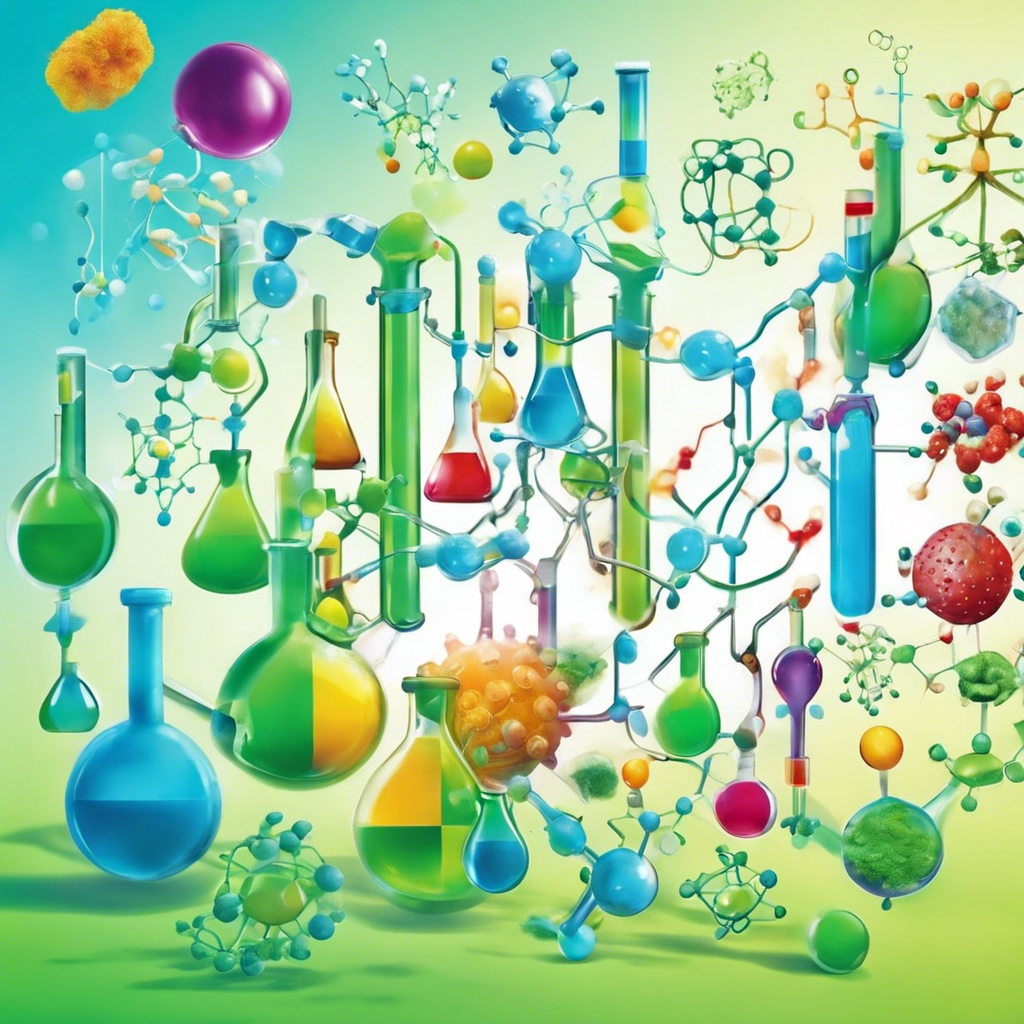Biocatalysis: Unlocking Green Chemistry and Sustainable Solutions

The Latest Developments in Biocatalysis and its Potential Impact on Various Industries
Biocatalysis, the use of enzymes as catalysts in chemical processes, has emerged as a promising field with the potential to revolutionize industries such as pharmaceuticals and environmental technology. With advancements in analytical methods, data volumes, and machine learning, biocatalysis is gaining traction as a means to make chemical processes more efficient, specific, and environmentally friendly. A recent publication in the journal Science, led by Prof. Dr. Uwe Bornscheuer from the University of Greifswald and Prof. Dr. Rebecca Buller from ZHAW, highlights the significant progress made in biocatalysis and its potential applications.
Tailored Enzymes and Sustainable Synthesis
Enzymes have long been used in biocatalysis to produce semi-synthetic antibiotics, building blocks for pharmaceuticals, and basic chemicals. However, recent developments have accelerated the creation of tailored enzymes, thanks to the advent of bioinformatics tools and machine learning. These tools allow for the customized design of biocatalysts, enabling the synthesis of complex molecules and the utilization of enzymes in novel chemical reactions. For instance, enzymes can now be equipped to carry out reactions not found in nature, such as the synthesis of starch from carbon dioxide. This breakthrough opens up possibilities for greener chemistry and the development of a comprehensive circular economy.
Protein Engineering and Industrial Optimization
Natural enzymes, evolved for specific metabolic functions, require optimization for industrial applications. Protein engineering methods have been used for nearly three decades to optimize enzymes, but recent advancements have revolutionized the field. The number of protein sequences stored in public databases has increased significantly, and reliable protein structures can now be generated automatically. These structures, combined with machine learning, facilitate the rapid adaptation of biocatalysts to meet the requirements of industrial processes. As a result, biocatalysis can now be employed in the production of highly complex drug molecules, such as islatravir for AIDS treatment, and therapeutic oligonucleotides. The ability to teach enzymes new tricks is expanding the scope of biocatalysis and making it applicable in various domains.
Addressing Plastic Waste through Biocatalysis
Plastic waste disposal is a global challenge, but biocatalysis offers a potential solution. In 2020, protein engineering methods led to the development of a highly efficient esterase capable of recycling PET plastic on an industrial scale. This breakthrough paves the way for efficient recycling processes for other plastics in the near future. Prof. Dr. Uwe Bornscheuer emphasizes that the state-of-the-art enzyme engineering methods discussed in the review article have the potential to revolutionize plastic recycling and contribute to sustainable waste management.
The Future of Biocatalysis
The review article not only summarizes the significant advancements in biocatalysis over the past decade but also provides a glimpse into its future potential. The combination of chemical and enzymatic catalysis processes holds promise for further advancements in the field. Additionally, enzymes are expected to find applications in the production of RNA therapeutics, gene therapy, and other innovative solutions for resource conservation and climate protection. The rapid development of bioinformatic and molecular biological methods is driving the synthesis of increasingly complex products through biocatalysis.
Conclusion:
Biocatalysis is rapidly evolving, driven by advancements in bioinformatics, protein engineering, and machine learning. The ability to create tailored enzymes and optimize their performance for industrial applications opens up a world of possibilities for greener chemistry and sustainable solutions. From the synthesis of complex drug molecules to the recycling of plastic waste, biocatalysis is proving to be a versatile tool with far-reaching implications. As research in this field continues to progress, the future holds even greater potential for biocatalysis to contribute to a more sustainable and environmentally conscious world.

